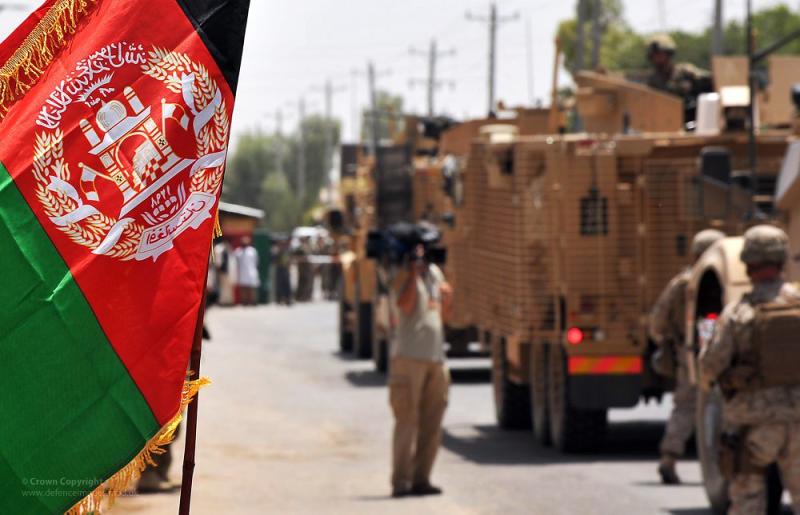On Sunday, it was announced that Taliban forces had captured Kunduz, a provincial capital in northern Afghanistan. The attack represents the third and most significant Taliban victory since last Friday. There are also reports of ongoing fighting in Herat, Kandahar and Lashkar Gah.
This follows an offensive campaign, launched by the Taliban in May after the Biden regime declared its commitment to “ending the longest war of America’s history”. Since then, US troops have been steadily withdrawing from Afghanistan, projected to be complete by September 11.
It’s clear that the regime has chosen this symbolic date—the twentieth anniversary of the terrorist attacks on the World Trade Centre in 2001—to bolster the myth that the objective of the invasion and occupation of Afghanistan was the fight against terrorism.
In reality, the war in Afghanistan was part of a wider strategy to stave off the decline of US hegemony through warmongering, invasion and occupation of those countries dominated by imperialism. This strategy, known as the Bush doctrine, was devised by war-hawkish neo-conservatives—who steered the Bush regime—to defend the right of US imperialism to “dominate the world militarily, intervening preemptively where necessary to exorcise threats.”
Therefore, despite being labelled part of the ‘war on terror’ following September 11, the invasion and occupation of Afghanistan was, in fact, the implementation of the Bush doctrine from the very start. This strategy continued with the invasion and occupation of Iraq and various other ‘endless wars’ in which the US imperialists have currently locked themselves.
Between 1996 and 2001, the Taliban held power over roughly three-quarters of Afghanistan. Based upon a strict interpretation of Sharia, the regime supported public executions of convicted murderers and adulterers, as well as amputations for those found guilty of theft. Television, music and cinema were strictly prohibited under Taliban rule. The regime also opposed girls aged 10 and above receiving an education.
Following the invasion, the Taliban regime collapsed and was replaced by a US puppet government. But despite increasing numbers of foreign troops, the Taliban have been able to gradually claw back power.
Since then, the Taliban have continued to carry out tactical offensives against the US puppet government. These include raids on NATO bases, such as in September 2012, and even capturing the city of Kunduz for a short time in 2015.
Although the Taliban now reports to control 85% of Afghan territory, recent estimates place it between a third and a fifth of the country. It’s believed that the Taliban is numerically stronger now than at any point since they were toppled in 2001. US intelligence believes that the puppet government is likely to collapse within six months of military withdrawal.
The response of the mass media in the imperialist countries, particularly in the US and the UK, has been sharply critical of the Biden regime on account of the withdrawal.
They’re begging the US government: ”don’t give up on Afghans (The Times).” They’re saying: “Biden’s hasty withdrawal from Afghanistan is a terrible mistake (Business Insider).” Even the liberal—that is, the relatively progressive—sections of the mass media report “we still have a responsibility to Afghans (The Guardian).”
These reactionary sections of the mass media are crying crocodile tears for the people of Afghanistan. The US invasion, with little opposition from that same media, has left hundreds of thousands dead and swathes of infrastructure destroyed. Despite their humanitarian phrase-mongering, they clearly hold little sympathy for the future of Afghanistan’s people.
Between the Taliban and the puppet government, the Afghan people have no reason to be interested in one side or the other. Despite hedging its bets against US imperialism, the Taliban nonetheless stands for the establishment of a state under the rule of the exploiting classes of Afghanistan.
Thus we refer to Lenin: “Hence, it is not every struggle against imperialism that we should support. We will not support a struggle of the reactionary classes against imperialism; we will not support an uprising of the reactionary classes against imperialism and capitalism.”
Stephen O’Connor, is a member of the YCL’s Derbyshire branch



